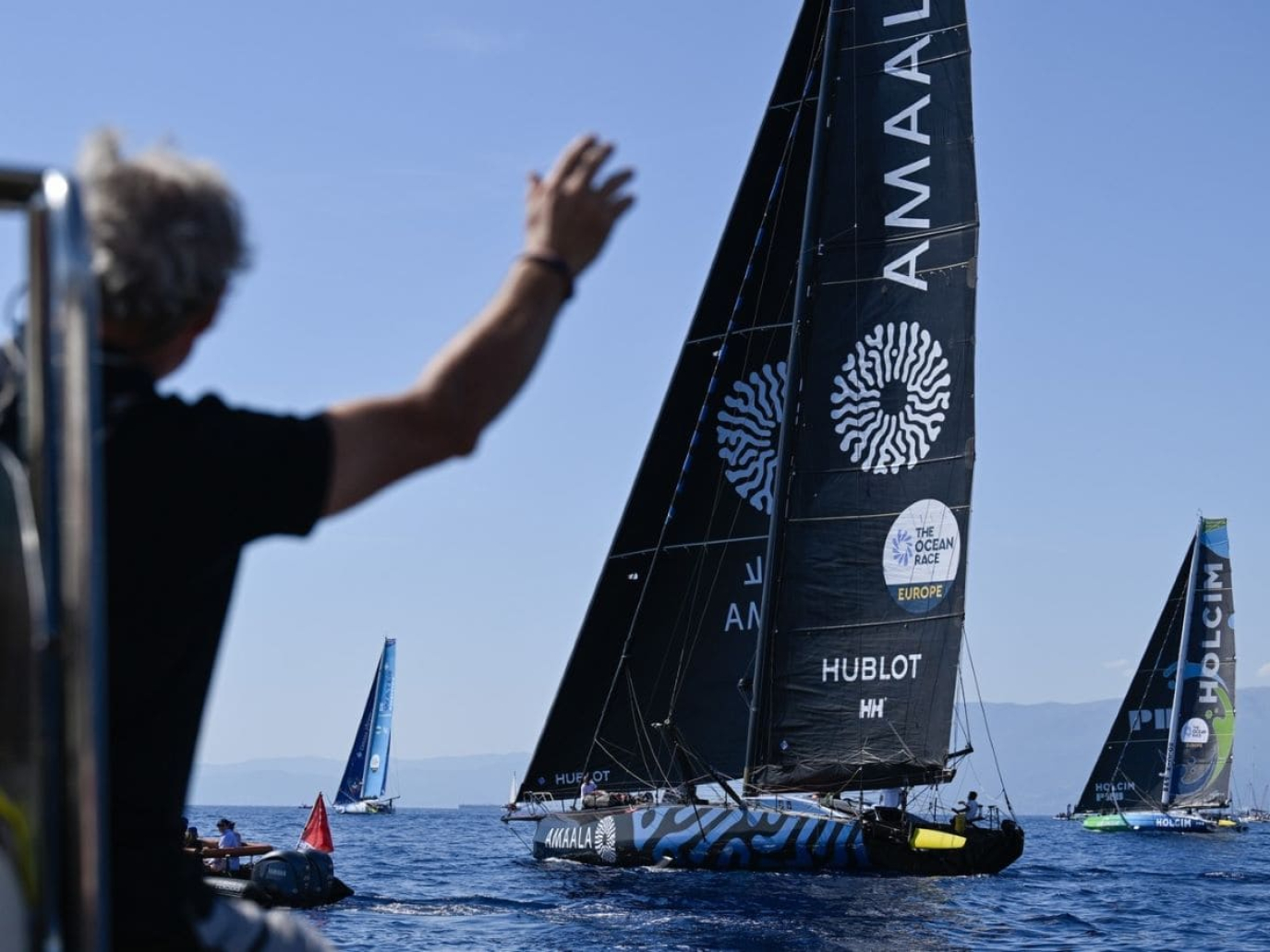This article is also available in Italian / Questo articolo è disponibile anche in italiano
Sailing is a sport that brings human beings face to face with the power and unpredictability of the sea. Intellect, physical strength and technology are not enough to confront the ocean: above all, understanding and respect are needed. However, the seas that host these races today are profoundly different from a few decades ago: human impact is changing marine ecosystems at an unprecedented rate.
The Ocean Race, founded in England in 1973, takes place in this context. Through time, it has become the flagship event of team ocean sailing, evolving into a platform for raising awareness on climate change and a concrete tool for research. Today, The Ocean Race is not only the most iconic team ocean boat race, but it is also an event that combines sport, science and awareness.
The Ocean Race Europe, a race for the future
The second edition of The Ocean Race Europe started in Kiel, Germany, on 10 August and should carry on until the 21 September. The European race is both a high-level competitive challenge, and a scientific and educational laboratory. In fact, it involves local institutions and it organises alongside Ocean Summits, with the aim of stimulating cultural and political change towards protecting the oceans.
In Genoa, during the last leg of this regatta, Renewable Matter met Oriol Casanovas, marketing manager of Helly Hansen, a technical outdoor clothing brand and main sponsor of the competition. “Being a partner of a leading sport event such as The Ocean Race stems from natural affinity with our values,” commented Casanovas.
“We have several shared values and passions, and this partnership really represents our shared commitment and determination to support sustainability and personal health. We're also both dedicated to enabling people to live life-and-health experiences through the power of nature.” In this sense, the collaboration between Helly Hansen and The Ocean Race Europe strengthens the link between innovation, sustainability and sport: it transforms a historic sailing competition into a global laboratory for ocean protection.
Each boat in the race carries scientific equipment that collects data on the state of the oceans in remote and difficult to access areas. The tools include temperature and salinity detection systems, microplastic analysis instruments, environmental DNA collection kits and photo-optical water analysis equipment. In this way, the teams contribute to widespread monitoring and collaborate with international scientific institutes to better understand the health of the seas.
Voices from the sea: the personal commitment of the skippers
Environmental protection is not just an official message of the regatta, but it is also a day-to-day commitment for those who sail the sea. “Each boat has, let's say, a sustainability project around the boat”, says Alan Roura, 30, skipper of the Swiss-Saudi team Amaala, who wears Helly Hansen and in his lifetime has spent more time at sea than on land. “I think that's really good too. We're not working together, because different sponsors have different point of view, but we're working for the same cause and this unites us.”
Roura notes the tangible consequences of climate change every day with a harsh but well-founded statement: "The Mediterranean is garbage”, he tells us. The problem is not limited to the spread of microplastics detected by research kits. There is also the alteration of animal migration routes and fast-changing weather conditions, which used to be constant. In the past, atlases could be used to plan routes safely, in turn these are today constantly changing and unpredictable, as confirmed by British sailor Pip Hare.
Hare is CEO and skipper of the Canadian team Canada Ocean Racing – Be Water Positive Sailing, and she tells us how she sees the race as an opportunity to spread a broader message: “The OceanRace is very much driving a sustainability message and the idea for promoting Be Water Positive as a team message stemmed from that. The campaign is not just about ocean health, rather it is about the global use of water as a resource both thinking about the health of the ocean but also inland rivers. [...] So it is a call to bring everyone together to think more about the water in the water action decade”.
But the mission is still in its early stages, and there is still much to do and to explain. On land and in an urban contexts, people are often unable to see the direct impact of their actions on water or the work of water collection and purification systems. However, it is important to be aware of this. In this sense, according to Hare, living at sea is a transformative experience: “One of the incredible things about living on a boat is that you learn to be happy with a lot less. This includes water, because we have to desalinate and store all of the water on the boat. This means you very much think about how you use it. Bringing that philosophy back to the shore you see how much waste there is [on shore]. When you see everything so clearly, then you change your behaviour. But once we get to the modern world people often revert back to not thinking about it. So, I do think that the being on a boat helps, for sure”.
Cover: photo by Jean-Louis Carli, The Ocean Race Europe 2025



